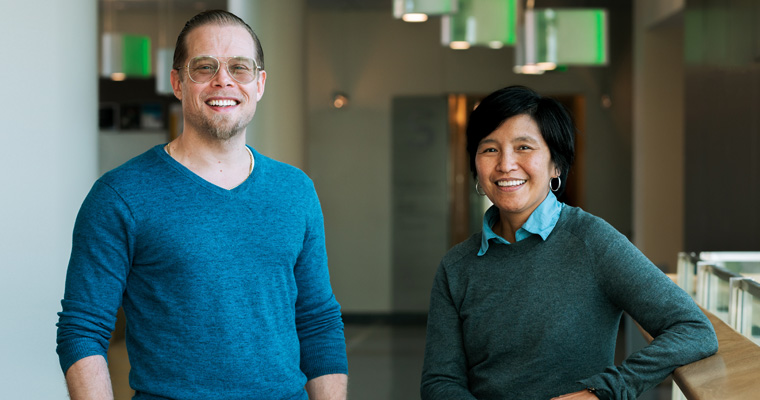- Home
- News
- Recent News
- Sloan Student Fellowships Coming to UMass Boston -
Sloan Student Fellowships Coming to UMass Boston
Professors Team Up with Foundation on new $499,972 grant

“ There is no better time than now to diversify the STEM community. ”
To help STEM students at both UMass Amherst and UMass Boston build the relationships that lead to lasting success, five professors across the two universities have teamed up with the Sloan Foundation on a $499,972 effort to change STEM education, beginning with engineering and computer science programs.
The project—entitled Culture Change in Computer Science and Engineering at the University of Massachusetts Public University System: A Partnership Between UMass Boston and Amherst—aims to diversify pathways from undergraduate to graduate education on the two campuses through faculty and student professional development and inclusive mentoring.
“There is no better time than now to diversify the STEM community,” says UMass Boston Assistant Professor of Computer Science Daniel Haehn, co-principle investigator on this project. “We must prioritize culturally aware mentoring and research in the UMass system, and this new partnership will create important opportunities for historically marginalized students at both institutions.”
The goal is to transform the local culture of faculty research labs by changing faculty relationships with Black, Latinx, and Indigenous (BLI) students in their research labs, according to the grant. Faculty are the primary drivers of university culture; therefore, the focus is on changing faculty mindset and behavior as the first step, tying inclusive cultural changes to research to sustain the effort.
The partnership between UMass Boston, a minority serving institution, and UMass Amherst aims to create cross-institutional pathways to graduate education for students who are marginalized in STEM at two public universities in Massachusetts.
UMass Boston’s $184,228 share of the grant will enable Sloan faculty and student fellowships in the computer science and engineering departments to prepare undergraduates for a research career.
In addition to Haehn, the five-member team includes Kim Hamad-Schifferli, professor of engineering at UMass Boston; Nilanjana Dasgupta, professor of psychological and brain sciences and director of the Institute of Diversity Sciences at UMass Amherst; Shannon Roberts, professor of mechanical and industrial engineering at UMass Amherst; and Neena Thota, senior teaching faculty and associate chair for teaching development in information and computer science at UMass Amherst. They hope that more inclusive engineering and computer science programs will then become models for reform through the UMass system.
“My own academic research has shown me that there is an evidence-driven roadmap to greater diversity and inclusion in STEM,” says Dasgupta, “and my aim is to take that evidence and convert it into programs that create expanded pathways for students and reshape institutions to represent the diversity of this nation. Representational diversity contributes to better science and engineering in the public interest. The more varied the STEM students the more likely they are to strive to solve research problems.”
